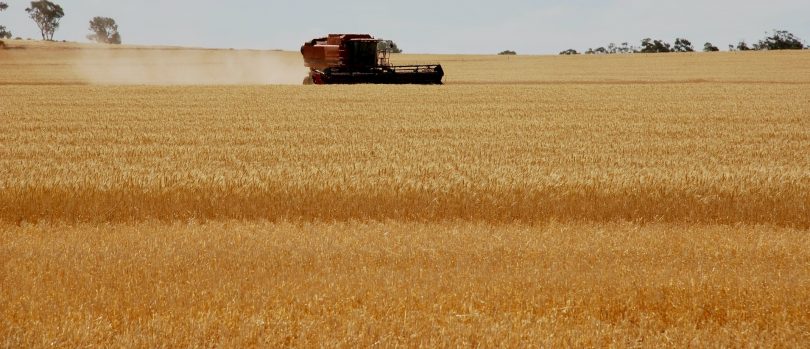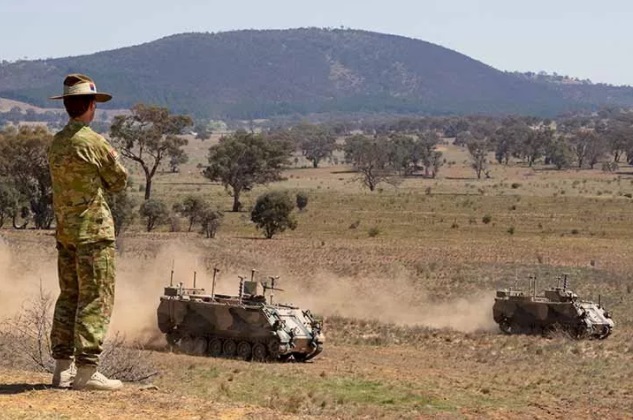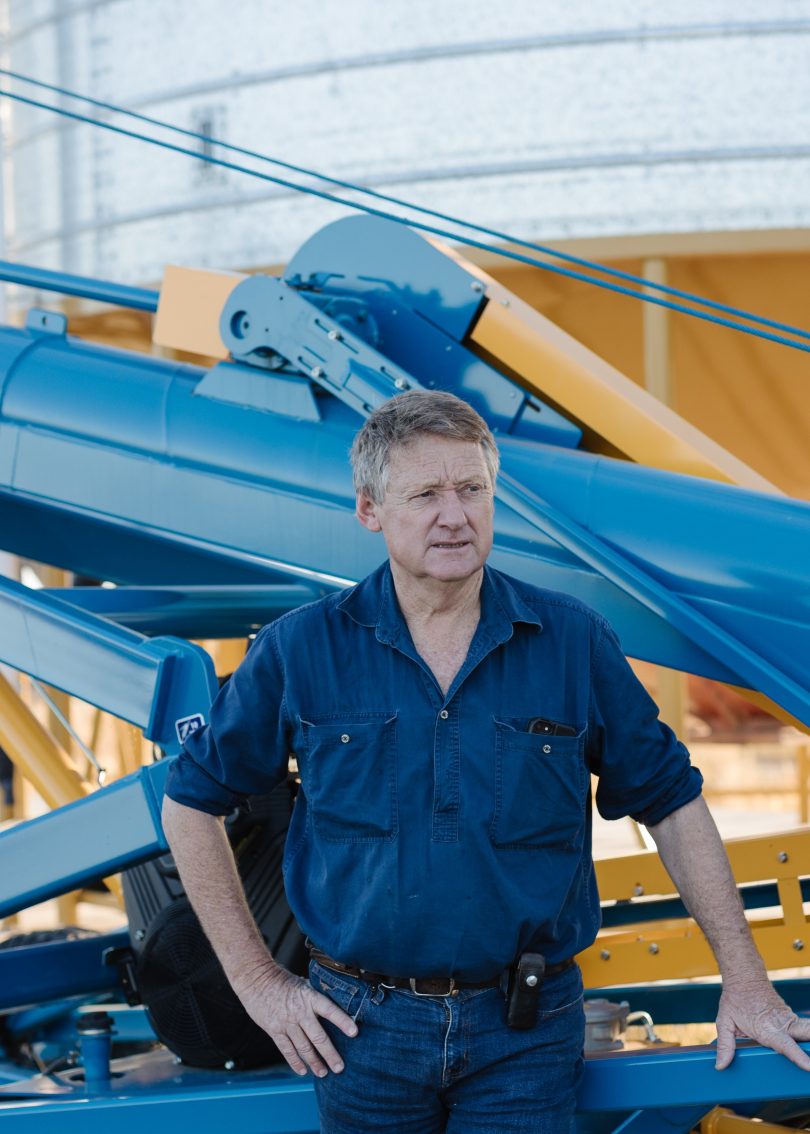
With another bumper harvest kicking off in Australia amid the COVID-19 pandemic, the call has gone out for former Australian Defence Force personnel to bring their skills to the paddocks. Photo: Supplied.
It’s not so much a call to arms as it is a call for arms, hands and legs as former Australian Defence Force (ADF) personnel are being asked to swap their tanks for trucks to help bring in the nation’s crops.
Golden fields of wheat, barley and chickpeas await the adventurous and expert, not just in the north of NSW but, come November, down here in the south as freshly windrowed sage green canola falls across the landscape like Van Gough’s lines.
Here in Young, one farmer, Craig Taylor, “has the truck and dog ready to go when you are”. A free three-bedroom house is also part of the package awaiting the right heavy combination truck driver who may well have driven a tank in their former life.
Fresh off the notion that willing Qantas pilots would be well equipped to assist with the 2020 harvest came a new proposition seeking the help of former ADF servicemen and women to help harvest bumper crops during the COVID-19 pandemic.
With national and international border restrictions leaving farmers struggling to find harvest workers for grain crops, Operation Grain Harvest Assist has been established to meet the pressing national need to harvest winter grain crops.

Australian Defence Force personnel can bring their transferable skills and experiences to operate heavy machinery or perform other vital tasks during this year’s grains harvest. Photo: Supplied.
Run by former ADF volunteers in collaboration with state farming organisations, including NSW Farmers, the initiative uses a dedicated Facebook page to connect former and retired ADF personnel with farmers, contract harvesters and grain supply chain businesses.
Launched on 6 September, the Queensland, NSW and Victorian Operation Grain Harvest Assist page has attracted 1500 members. And it’s not just about the grain, either, with additional calls for assistance with the upcoming fruit and vegetable harvests, usually heavily reliant on backpackers, grey nomads and university students.
The towns of Young and Tumbarumba will feel this most keenly with the onset of the stone fruit season from November through to January.
Set for another bumper crop after years of drought, the NSW grains industry is expected to have a shortfall of around 1000 workers.
NSW Farmers’ Grains Committee chair Matthew Madden said the availability of seasonal workers has dropped drastically since the onset of the COVID-19 pandemic, while inconsistent rules around interstate travel has further reduced confidence in our ability to shore up an adequate workforce in time for harvest.
“We need a timely and successful harvest and the experience of former ADF servicemen and women in areas such as heavy machinery handling will make them ideal candidates for grain harvest roles, many of which are skilled or semi-skilled,” he said.
Since Operation Grain Harvest Assist was announced, Mr Madden said he’s been inundated with calls from people offering assistance on his Moree operation.

NSW Farmers’ Grains Committee chair Matthew Madden says former Australian Defence Force personnel would be ideal candidates for grain harvesting roles. Photo: Supplied
“It has been quite amazing the people who have called me,” he said. “I had to tell them I was speaking for the broader industry but one of them was a former school principal who said they knew nothing but wanted to offer a hand.”
Grain Producers Australia (GPA) chief executive Colin Bettles said there has been a major positive response to Operation Grains Harvest Assist, with retired Royal Australian Armoured Corps Lieutenant Colonel Garry Spencer leading the charge
“This initiative is not only taking immediate pressure off farming communities, it’s also giving retired and former ADF personnel a greater sense of purpose, as well as a valuable source of income by using their transferable skills and experiences to operate heavy machinery or perform other vital tasks during this year’s grains harvest,” said Mr Bettles.
While the current focus remains on connecting workers with farmers in need, Mr Bettles said work is also underway to collect data and analyse the operation to assess how this initiative could be developed in the future.
“This operation is part of a suite of national policy initiatives GPA has advocated and pursued to try to raise awareness and help overcome labour shortages and complex challenges caused by the ongoing impact of COVID-19 and subsequent international and state border closures,” he said.
“Labour supply is critical to help optimise the value of this harvest – which is forecast to be one of the biggest on record at about 55 million tonnes nationally – to help support producers and rural communities with ongoing social and economic recovery from drought.”
NSW Farmers has also recently released a 10-point plan calling for government assistance to curb worker shortages.
Measures include fast-tracking approval of workers under the Seasonal Worker Program and Pacific Labour Scheme; attracting domestic workers through incentives such as HECS relief; and short-term financial aid to make farm and regional workplaces, transport and accommodation COVID-19 safe.
Farmers are urged to register their worker needs via the Queensland, NSW and Victorian Operation Grain Harvest Assist Facebook page.
Original Article published by Edwina Mason on About Regional.







